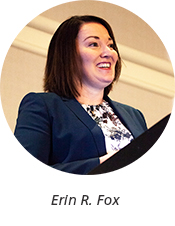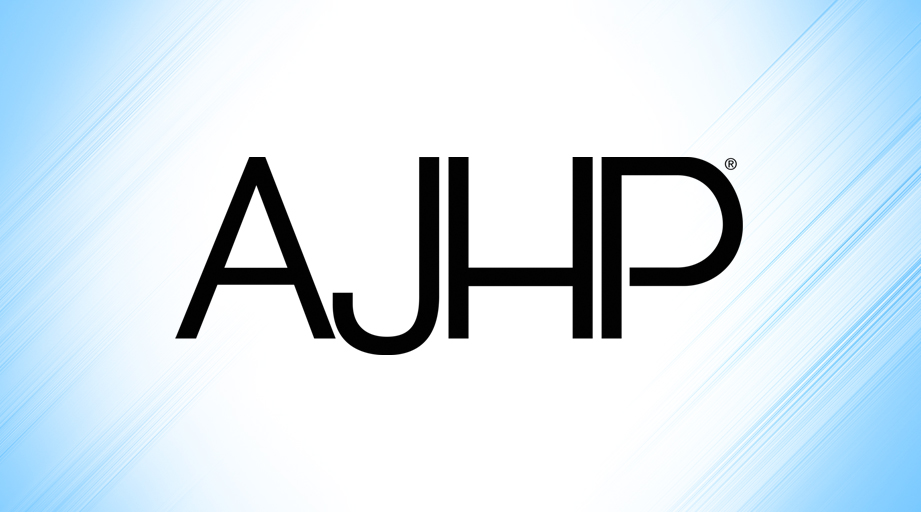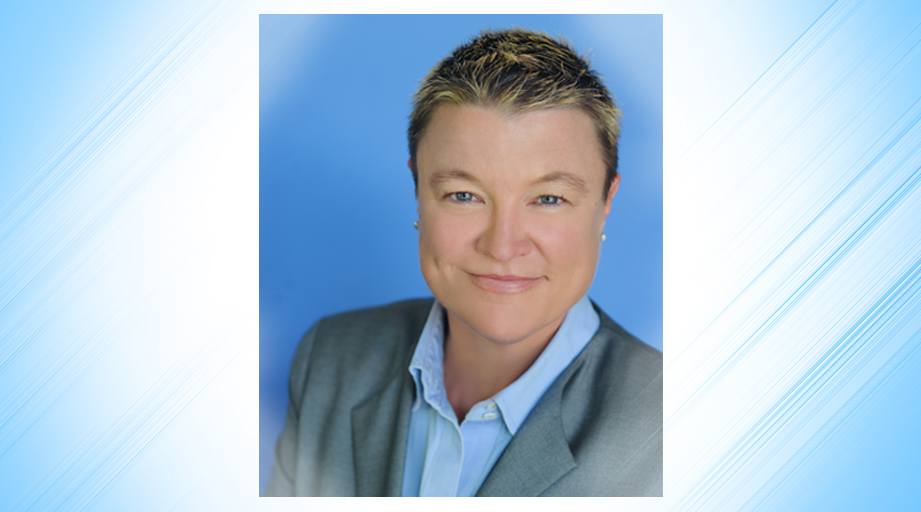
Erin R. Fox, Senior Director of Drug Information and Support Services at University of Utah Health, has advice for pharmacy colleagues about how to shape policy and drive national conversations on issues that are important to the profession.
“Think big. You can make a difference,” she said Sept. 10 while presenting the 2019 William A. Zellmer Lecture in Bethesda, Maryland.
The William A. Zellmer Lecture Award was established by ASHP and the ASHP Foundation to recognize leadership in advancing public policy that promotes safe and appropriate medication use. The awardee delivers the lecture during ASHP’s annual Policy Week activities.
 Fox, the 10th recipient of the award, is a nationally recognized expert on drug product shortages and a familiar face and voice in media reports about the topic. She has appeared before congressional committees to discuss shortages and how they affect patient care and served as a resource on shortages and related topics for pharmacy departments and hospitals.
Fox, the 10th recipient of the award, is a nationally recognized expert on drug product shortages and a familiar face and voice in media reports about the topic. She has appeared before congressional committees to discuss shortages and how they affect patient care and served as a resource on shortages and related topics for pharmacy departments and hospitals.
“I believe we can eliminate shortages through advocacy and policy development,” she said.
Fox said her own “advocacy journey” began nearly 20 years ago when she was tapped to oversee the development of a clearinghouse of standardized drug shortage information for the pharmacy profession.
“At the time, I had no idea what I was volunteering for,” she said of what soon became ASHP’s resource center on drug shortages.
Today, the drug information team at University of Utah Health continues to create the drug shortage bulletins that form the backbone of the highly regarded resource center.
“The government accountability office calls our data the most comprehensive and reliable source of drug shortage information,” Fox said.
As the resource center gained visibility, Fox came to the attention of the press and began receiving interview requests. She said she overcame her discomfort at being in the news media’s spotlight by recognizing the importance of sharing accurate information about shortages and keeping attention focused on them.
“I have the opportunity to pitch stories to reporters that I’ve gotten to know well. And what makes me happy is that some of these stories about high drug costs and drug shortages have become national stories,” she said.
Fox said the skills pharmacists use when speaking as a subject matter expert with a supervisor or administrator are useful when talking to reporters. But she also urged pharmacists to boost their confidence by getting media training if they have the opportunity to do so.
Fox said her outrage about shortages continues to fuel her resolve to push for solutions to the problem.
“I find it absolutely unacceptable to have shortages of medicines in the richest country in the world,” she said. “I take each shortage personally.”
She said ASHP’s 2017 roundtable on drug product shortages produced recommendations for policymakers to implement. These include classifying shortages as a national security concern and requiring or incentivizing manufacturers and compounding outsourcing facilities to provide information about drug quality.
“You can and should press drug manufacturers to provide you with more information on quality,” Fox told the audience. As part of these inquiries, she said, pharmacists should ask companies where their products originate, who manufactures them, and what contingency plans are in place to ensure a stable supply of drug products.
“Some companies are starting to provide more details about this,” she said. But she added that it’s important to keep asking questions even when companies decline to answer them.
Fox said it worries her that an entire generation of pharmacists has never practiced at a time when drug shortages weren’t a daily occurrence. For these clinicians, she said, shortages are “part of the normal pharmacy operation, something to be managed.”
“This is not normal. It’s absolutely not normal to face drug shortages daily. It’s unacceptable for our patients” and for the profession, she said.
She urged her colleagues to start their own advocacy journeys by focusing on a specific issue, being persistent in the face of setbacks, and embracing opportunities to speak up even when it’s inconvenient to do so.
“Pharmacists have an obligation to advocate on behalf of their patients and profession,” she said. “If you don’t tell your own story, others will tell it for you.”
[This news story appears in the March 1, 2020, issue of AJHP.]









